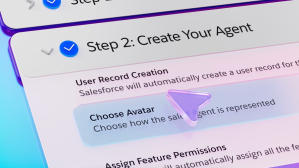New graduates are venturing into the workforce unprepared to address widespread tech needs, says Salesforce’s president of the Europe, Middle East and Africa regions.
“Many of the students that throw their caps in the air… do so without the skills they need to thrive in the modern world, where every company is a tech company,” writes Salesforce’s Miguel Milano on the leadership news website Management Today.
Milano notes that The World Economic Forum’s Future of Jobs report found that 35 percent of core skills would change from 2015 to 2020. “It’s vital that universities offer more personalized courses to students and consider the digital skills they are going to emerge with,” he says.
The gap in tech skills is also felt in the home of Silicon Valley’s tech-infused Stanford University, the chief information officer of the City of Palo Alto tells Salesforce. “Two areas where there is now a huge demand for skills are cybersecurity and data science,” Jonathan Reichental says in an interview. “In neither of those areas are universities or professional organizations training enough people.”
Milano points to several ways businesses can address the issue:
- Offer more internship and apprenticeship programs to students, getting them into a business environment as early as possible
- Offer a job-integrated bachelor’s degree in business technologies, as Salesforce is doing with Steinbeis university in Germany
- Provide online learning for staff to learn skills relevant to their jobs in a supportive community, such as Salesforce Trailhead
The change calls for a deliberate culture shift in the Fourth Industrial Revolution, Milano notes. “Work needs to be a bigger part of education and education needs to be a bigger part of work.”















